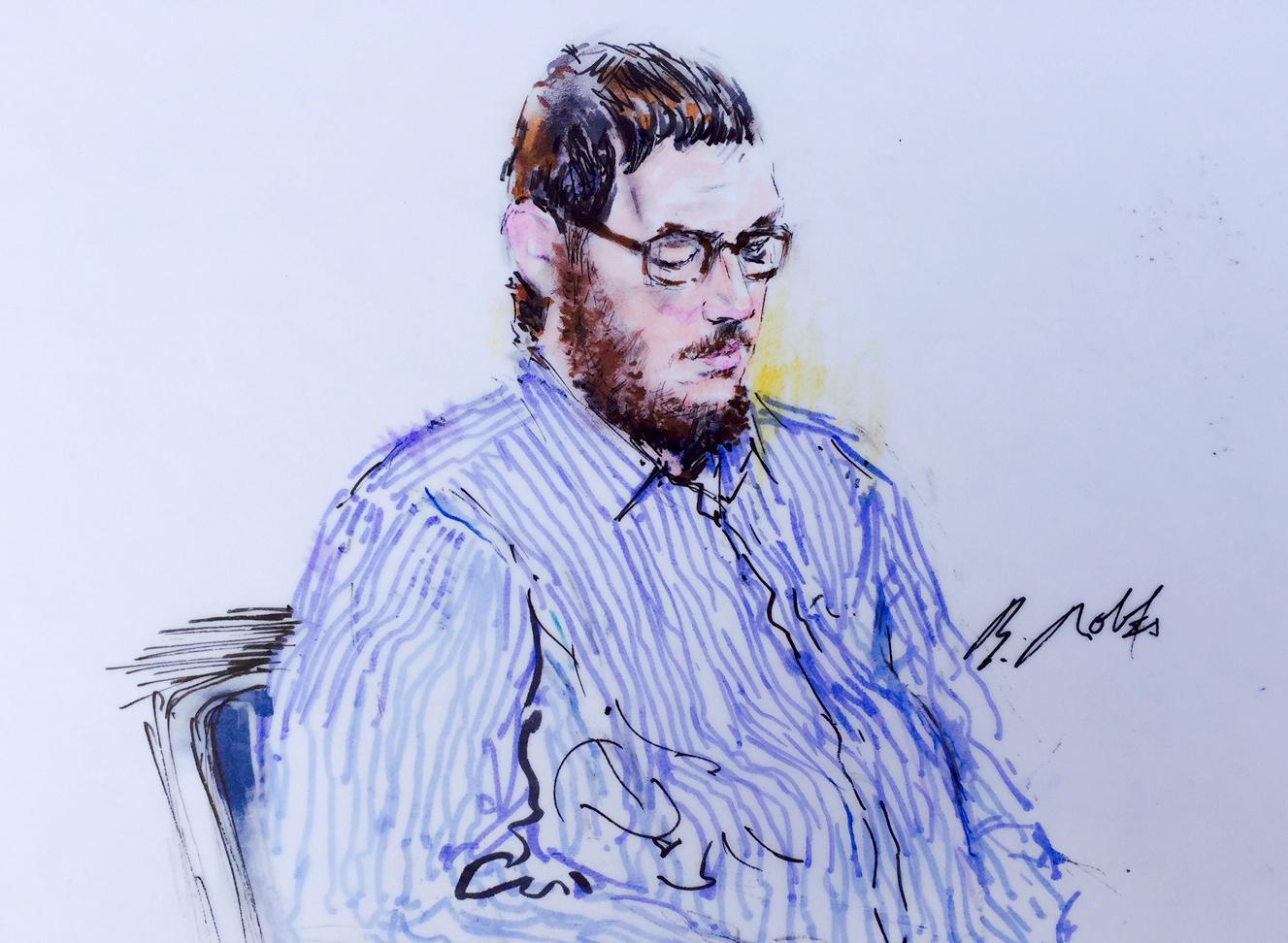
The gunman behind the Aurora theater shooting told a court-appointed psychiatrist that he knew what he was doing was legally wrong, and that the killings increased his sense of self-worth.
James Holmes has pleaded not guilty by reason of insanity in the July 20, 2012, Aurora theater attack that killed 12 people and injured 70. His comments were heard Monday, in the third day of a court presentation of 22 hours of psychiatric evaluation by Dr. William Reid.
- May 29: Holmes Shunned Friends Before Aurora Theater Shooting
- May 27: Photos: Pages From James Holmes' Notebook
- May 26: Holmes' Notebook: What It Reveals
On Monday, about halfway through the recording being shown to jurors, Holmes can be heard to make a startling admission.
"I knew it was legally wrong," he told Reid, who has already testified that in his medical opinion, Holmes was sane at the time of the attack -- that Holmes knew the difference between right and wrong.
The video is likely the only chance jurors will get to hear from Holmes himself. In it, he also said he viewed the attack as a mission "to go to the theater and shoot as many people as possible."
Holmes also told Reid that he believed killing others increased his self-worth.
"Anything that they would have done or, like, pursued, gets canceled out and given to me," he told Reid.
Holmes assigned one point for each person, so that by killing 12 people he added 12 points to his self-worth. The injured didn’t count. And he said he regretted that people were wounded.
In the video, Reid asked Holmes to explain the logic behind that belief, but Holmes could not.
"It’s not based on logic, it just is the way it is," Holmes replied.
- Read The Charges Against James Holmes
- The 12 Lives Lost In The Aurora Theater Shooting
- Aurora Theater Shooting Timeline
Holmes told Reid he targeted the theater for several reasons. He knew it would be packed with people, since it was a midnight premier of a highly anticipated movie. Also, a midnight showing meant there would be fewer children in the theater.
"He says he didn’t want to kill children, and says he was sorry that a child was killed when he discovered that one was," Reid testified.
That victim was 6-year-old Veronica Moser.
Though Holmes talked about experiencing depression before the shooting, Reid testified he found no evidence of that. He also noted that Holmes’ purchases of armor and weapons were well reasoned.
"He didn’t just go out and just buy things willy nilly, he says and appears to have researched it, researched what was effective and what wasn’t," Reid said. One of his purchases was, "A particular kind of pistol which was heavy enough to have stopping power yet light enough to not have a great deal of recoil."
Holmes also told the psychiatrist that he wasn’t commanded by any God-like voices. In Reid’s opinion, Holmes acted on his own authority.
"Wasn’t God, wasn’t Satan, wasn’t an external power of something like this. This was him," Reid said. "And it’s an inference on my part that he was taking responsibility for it."
It later came out in court that Holmes told another psychiatric expert he was controlled by a master power. The defense is expected to call that psychiatrist when it makes its case that Holmes was insane at the time of the shooting.








